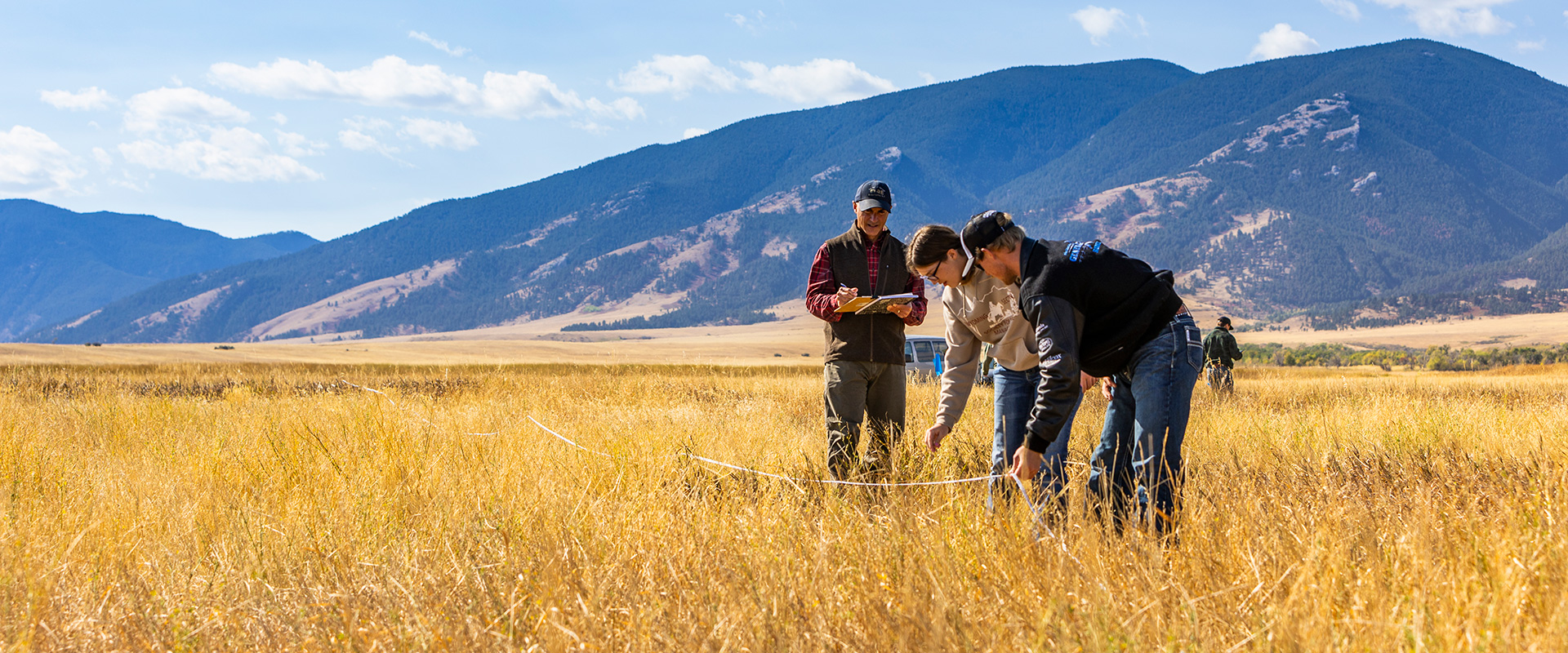Overview
Do you enjoy working in the outdoors and researching in the field? Are you interested in ranching, agriculture, or land management? Our Associate of Science degree in Rangeland Management is rooted in applied management and ecology and features a hands-on, outdoor-focused curriculum. As a student in the Rangeland Management program, you will learn from award-winning faculty and leading industry professionals, preparing you for a career in natural resources.
The Sheridan College Rangeland Management Program prepares students to pursue careers or higher degrees in areas that involve the management of our natural resources. This comprehensive program is hands-on and teaches students how to accomplish management goals such as managing sustainable and productive livestock forage, ensuring clean and adequate water supplies, beautifying recreational scenery, and improving wildlife habitat. Students participating in this degree program will frequently pursue careers in rangeland ecology and management, rangeland stewardship, wildlife management, restoration ecology, and environmental consulting.
You will take courses such as rangeland ecosystems, field ecology, and intro to soil science. You will also have the opportunity to compete in the Wyoming Society for Range Management’s student competitions. Our students have also competed on the national level, excelling at the Society for Range Management conference, traveling to California, Florida, Minnesota, and more.
Sheridan College’s Associate of Science in Rangeland Management Program allows students to immediately join the workforce as field technicians or transfer to four-year universities, including the University of Wyoming, to pursue bachelor’s degrees.
Why Sheridan College?
- Our program emphasizes outdoor learning. Students spend valuable field time with professionals, learning from real-world experiences.
- The Rangeland Management Program includes a capstone project where students design their own research project, land management plan, or shadow a natural resources agency to complete a final project.
- We partner with USDA Forest Service, USDA Natural Resource Conservation Service, Wyoming Game and Fish, Sheridan County Conservation District, and more to give our students professional experience.
World-Class Facilities
The Mars Agriculture Center is a 16,000 sq. ft. state-of-the-art building with top-notch learning environments for a variety of disciplines within the Sheridan College Ag Department. It also encompasses outdoor learning spaces such as the field lab, livestock barn, farrier barn, and greenhouses.
This is your rangeland classroom: the outdoors! We have the best field trips (but we might be a little biased!). Our students get out into the environments that we’re studying and get their hands in the dirt. Trips along creeks and rivers, as well as up to the highest passes in the Bighorns; you won’t just read about rangelands, you’ll experience them firsthand!
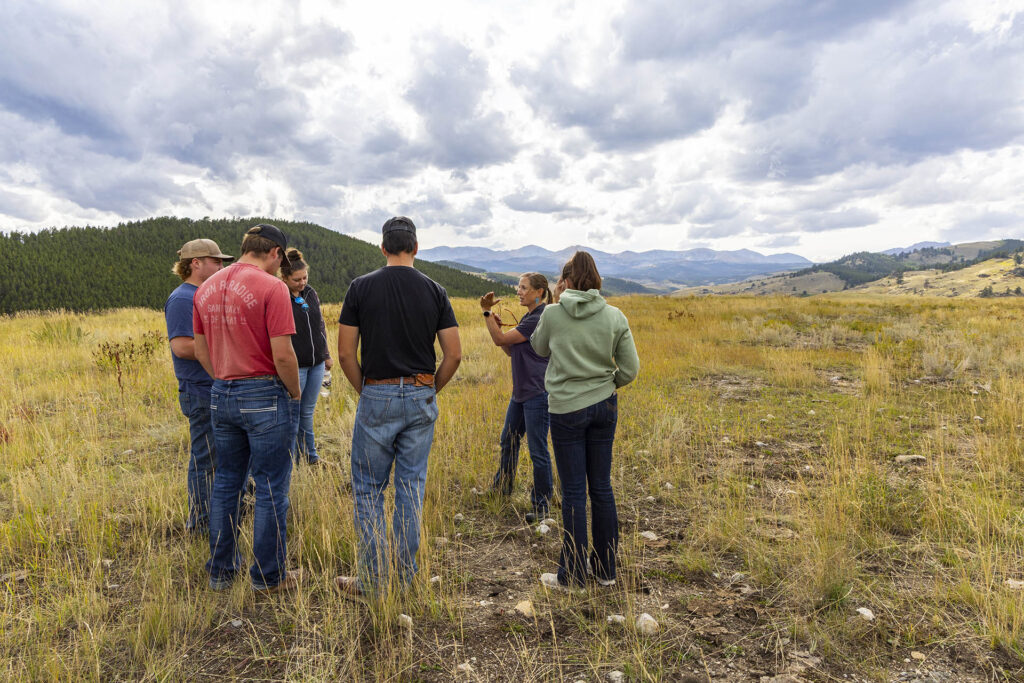
Over 2.5 acres of field lab space, featuring hop vines, orchard, vineyard, and rangeland plant spaces as well as free range chickens. The hops are harvested every year in collaboration with our local Black Tooth Brewing Company.
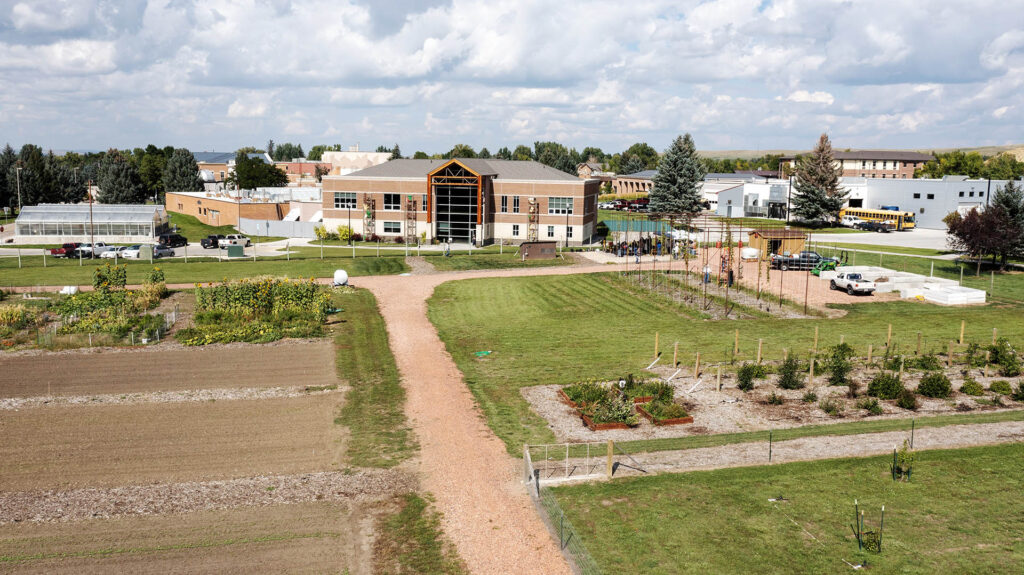
The livestock barn is a 4,000 sq ft learning space that houses the colleges livestock. It includes 8 pens that allow livestock to access both the inside and outside. Pens are adjustable allowing for animals to be housed in one larger pen when they first arrive providing comfort or housed in individual pens which is necessary when students conduct feeding trials to calculate feed efficiency.
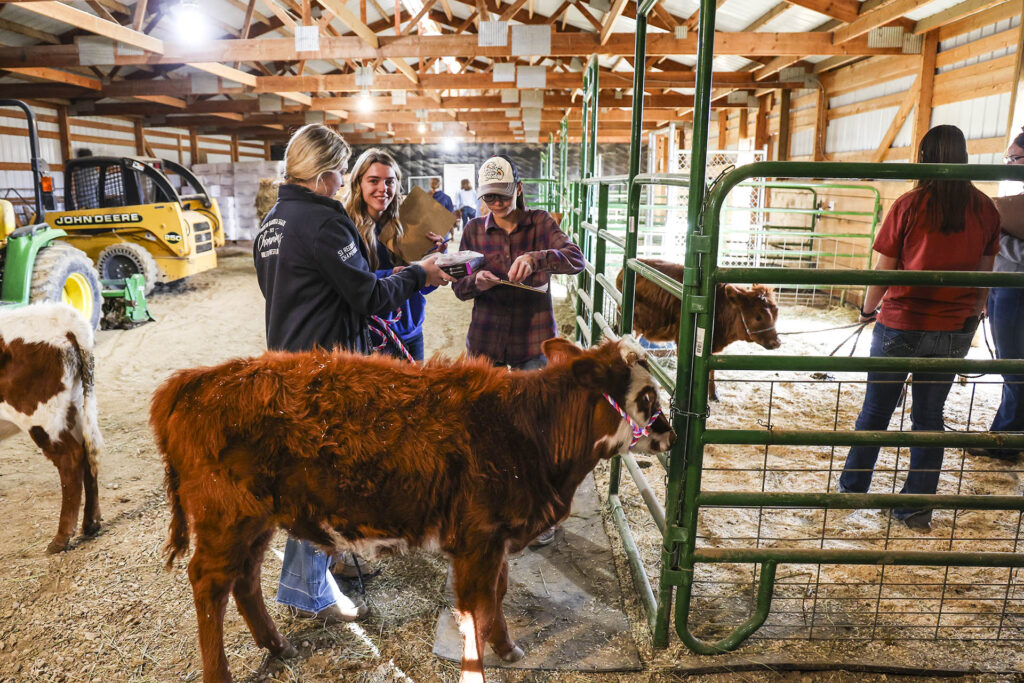
The Sheridan College Agriculture program as four professional teaching greenhouses in addition to the outdoor field lab space.
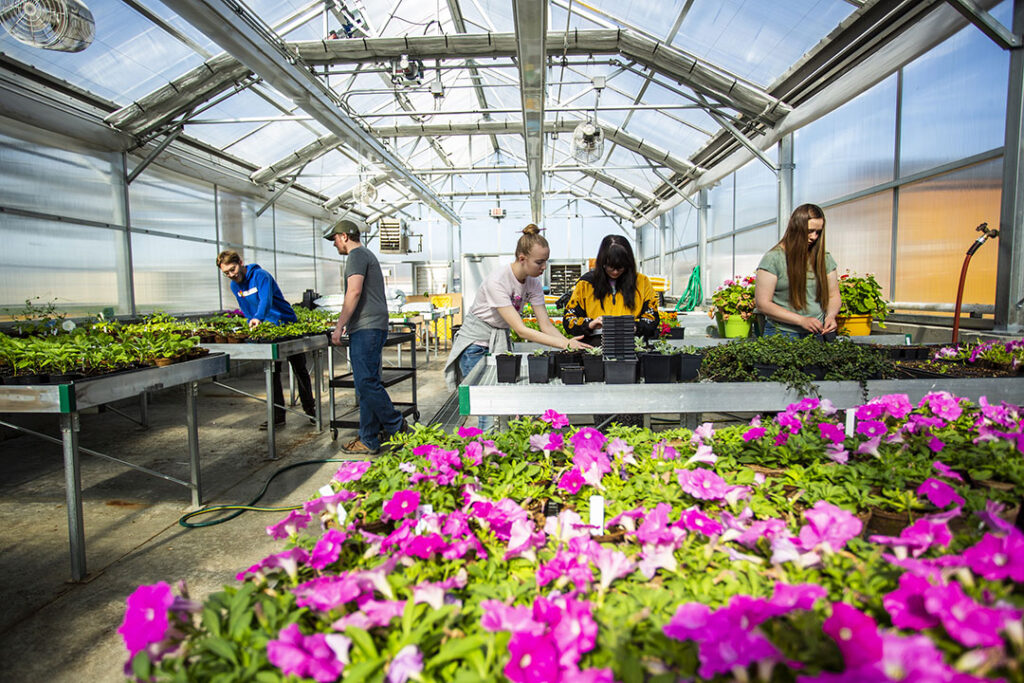
The Herbarium houses over 2500 preserved, pressed plant specimens for plant ID and plant research activities.
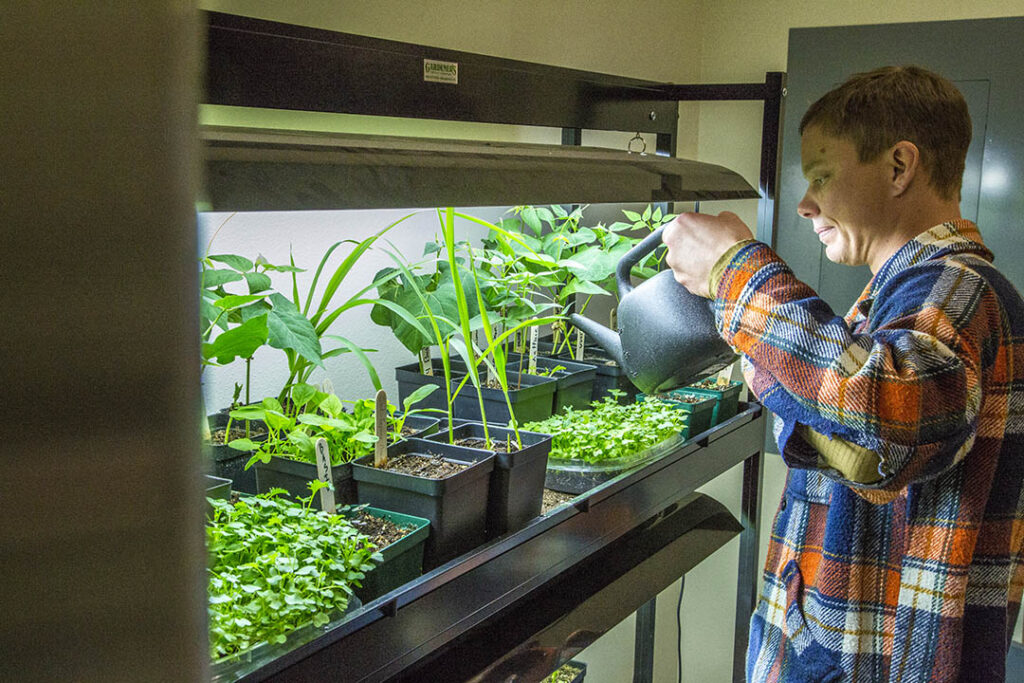
The new science labs support small laboratory classes in plant science sciences, soil science, animal science, and genetics. They are equipped with a variety of modern technological tools used in these areas of science.
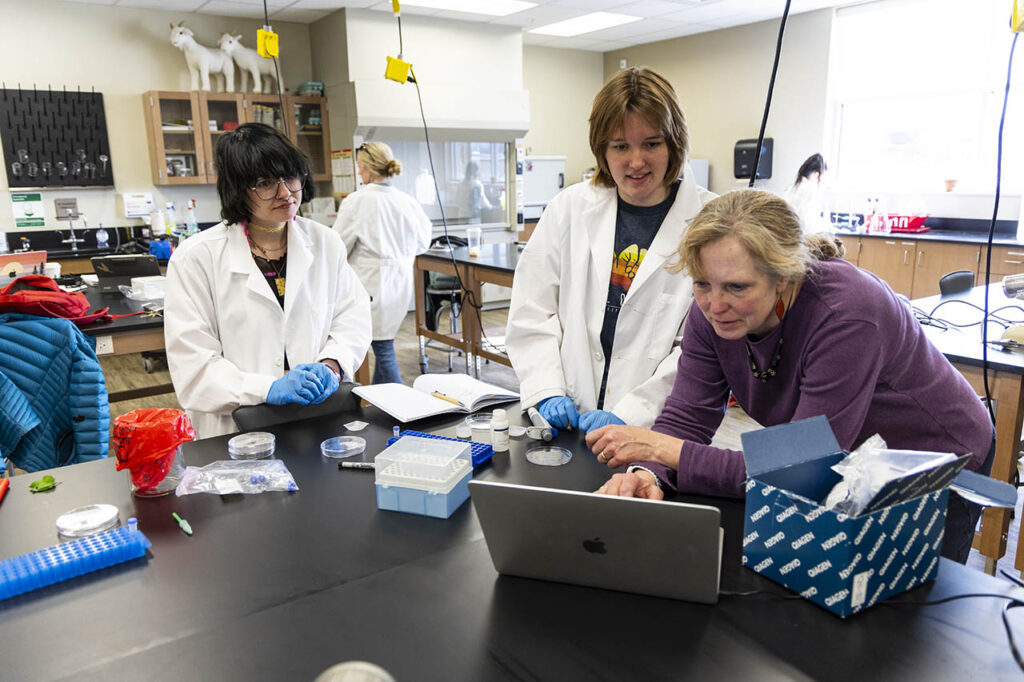
Careers & Industry Outlook
From the shrub-lands of Wyoming to the wetlands and grasslands of states like Florida, there are more than 700 million acres of rangelands in the U.S., according to the Forest Service. With the wide variety of rangelands from deserts, woodlands, and tundra, rangeland managers and ecologists hold several job titles in the public and private sectors.
Industry Projections
- There are estimated 3,000 predicted job openings for conservation scientists and foresters each year from 2024 to 2032 says US Bureau of Labor Statistics
Job Types
Sheridan College’s Associate of Science in Rangeland Management will provide the foundation of knowledge and skills for you to pursue further education and ultimately, jobs across numerous fields. A degree in Rangeland Management can lead you to a career like:
| Rangeland Conservationist |
| Field Botanist |
| Restoration Coordinator |
| Natural Resources Specialist |
| Field Technician |
| Wildland Fire Specialist |
| Ranch Manager |
| Mining Reclamation |
| Ecologist |
| Wildlife Management |
| Environmental Consultant |
Curriculum & Program Outcomes
Associate of Science
Explore the variety of coursework you’ll have in the Rangeland Management program.
Program Outcomes
- Compare rangeland ecosystems and how they respond to environmental and human disturbances.
- Differentiate rangeland plants according to their characteristics and function.
- Demonstrate decision making based on appropriate rangeland data collection.
- Develop management recommendations by conducting research to address natural resource issues while using a systems approach.
Scholarships
We make it easy. $3.7 million in scholarships awarded annually.
Financial Aid
Let us help you navigate the numerous financial aid opportunities available.
Faculty
Our Agriculture Department faculty are enthusiastic and approachable. They will make sure you learn the foundational skills to further your education or find a job following graduation. Sheridan College’s strong relationships with local and national industries in rangeland management, wildlife management, and agriculture present students with unique opportunities to expand their college experiences.
